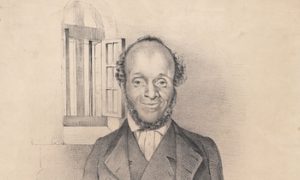
William Cuffay
This date celebrates the birth of William Cuffay, a Black tailor and politician, in 1788.
His father was a naval cook and former slave from Chatham, Kent, in England. A young Cuffay found work as an apprentice tailor. Also, as a young man, he held conservative views as late as 1833. Cuffay argued against the formation of trade unions and was the last member of his lodge to join the (then) new tailors' union. Yet when the tailors' union went on strike in April 1834, Cuffay joined them and, as a result, lost his job.
Angry about how he had been treated and convinced that workers needed to be represented in parliament, he became involved in the struggle for universal suffrage. In 1839, Cuffay joined the Metropolitan Tailors' Charter Association. He became an important figure in the Chartist movement in London and, in 1842, was elected to the five-man national executive of the National Charter Association. Later that year, he was chosen to become president of the London Chartists. Cuffay argued for the Chartists to remain independent from the Anti-Corn Law League and was shown by newspapers as one of the militants' leaders. The Times described the militants in London as "the black man and his party."
After 1845, Cuffay became associated with Fergus O'Connor. He supported O'Connor's Land Plan and, in 1846, became auditor to the Land Company until 1848. He was also one of the three London delegates at the National Convention and considered one of their most militant members. In the summer of 1848, a government spy provided information on a group of London Chartists. Based on the evidence, Cuffay was arrested, convicted, sentenced, and transported to Tasmania for 21 years. His wife worked for Richard Cobden until she raised enough money to join her husband in 1853. Three years later, all political prisoners in Tasmania were pardoned.
Cuffay did not return to England and became a tailor in Tasmania. He became involved in radical politics and trade union issues and played an important role in persuading the authorities to amend the Master and Servant Law in the colony. William Cuffay died in poverty in Tasmania's workhouse in July 1870.